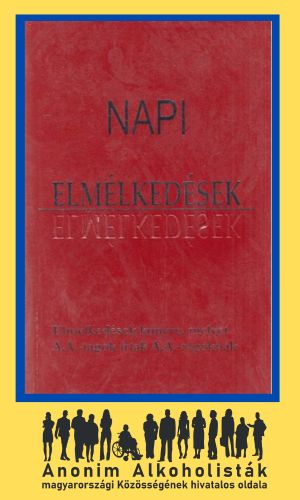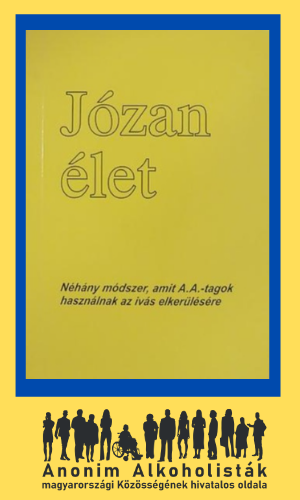Adult addictology:
We provide outpatient addiction treatment for those in recovery, and we provide short and long-term drug and psychotherapy, both individual and family, according to the needs of the patient.
In our institution the care is free of charge, a social security card is required.
Family therapy: the systems approach sees the family as the source of the problems and the unit of therapeutic intervention. The focus of therapy is on the family, its subsystems and the individual's significant family relationships. In family relationships, mutuality through communication tries to create changes in the way experiences are experienced and processed, and in behaviour. In family therapy, the symptom or the symptom carrier represents the metaphorical dysfunction of the family as a whole.
Child and adolescent addictology:
Addiction care for adolescent addicts is currently the only addiction care in our institution with a national coverage.
We deal with the following problems in our children and young people's addiction unit:
drug and alcohol problems
drug addiction
behavioural addictions (e.g. gambling addiction, internet addiction)
What does the clinic deal with, what complaints, symptoms and illnesses can I come here with?
Care (diagnosis and therapy) for 10-18 year olds is provided in a team (team) by a psychologist, psychiatrist, family therapist and social worker.
Relief of psychological symptoms resulting from substance abuse, addiction, life difficulties and crises.
Providing educational advice to parents (parent consultations, family consultations).
Learning training, psychotherapy. If necessary, medication is included in the treatment.
What to expect when ordering?
Usually a 1-hour activity for the child. Before or after is often time spent with an accompanying person.
Preparation:
If you decide you want to stop, we can help you get into a drug treatment home.
The aim of our pre-care meetings is to get to know the drug treatment home programme as well as possible.
During your time in pre-screening, you can have the screening tests you need to get in (hepatitis, HIV, lung screening).
By staying in touch, you can confirm your intention to stop.
Abstinence is not a prerequisite for attending pre-care.
Day care for addiction patients:
Official business, assistance with specialist care (health, social), psychological support for addicts and their relatives, job search, respite.
If you or a loved one is affected by addiction, contact us for help:
for official business: for example, obtaining documents,
access to appropriate social and health care services: e.g. information on institutions, contacting,
professional support in the form of personal, family, medical, psychological or spiritual counselling,
to find a job: free internet and phone access, information on the services of the Job Centres,
You can get support to develop a healthy lifestyle, refuse drugs, we'll listen if you want to talk,
you can wash your clothes, take a bath,
relax, read and take part in our leisure activities,
you can use our community space for unpretentious entertainment: for example, for birthday parties, get-togethers with friends.
Consultation:
If you need individual help, you can also use our consultation service. You'll have an assistant who will work with you individually for 1 hour a week. The sessions take place in a separate room where you can talk openly about your problems and difficulties. Our consultation service is free of charge.Family therapy: the systemic approach sees the family as the source of problems and the unit of therapeutic intervention. The focus of the therapy is on the [highlight]family[/highlight], its [highlight]subsystems[/highlight] and the [highlight]individual[/highlight]'s [highlight]significant [highlight]family relationships[/highlight]. In family relationships, mutuality through communication tries to create changes in the way experiences are experienced and processed, and in behaviour. In family therapy, the symptom or the symptom carrier represents the metaphorical dysfunction of the family as a whole.
You can use our daytime catering:
anonymously,
voluntarily,
free of charge,
even if you are not clean: our cooperation aims to achieve abstinence, but it is not a condition for care
without a referral, no social security card or ID card required: but it's good to have one - we can help you get one.
Community care for people with addiction:
The aim of community care for addicts is to help addicts in care to remain integrated and full members of society and to reintegrate into the community. To this end, we provide care, psychosocial rehabilitation and all forms of counselling in the addict's home environment, where he or she lives. We help people with addiction to improve their health and mental wellbeing; to maintain and develop their existing skills and abilities; to resolve conflicts and problems in their daily lives; to access social and mental care and healthcare. The working method of community care is systemic family care, which builds on the active and responsible participation of the patient, community resources and the involvement of natural supporters. In community care, the task is not only to reach, help and empower the substance abusing (or other addicted) client, but also the family members.
Community care provides clients with both access to a complex range of services and differentiated, individualised care.
Community care provides the following services:
Problem analysis, problem solving: helping to set personal goals, identifying and strengthening the motivating factors for change, encouraging lifestyle changes, reducing the collateral harms and harmful consequences of substance use and dependence, preventing relapse, providing immediate advice and assistance to those who use the service on an ad hoc basis.
Skills development: organising or facilitating life skills training, improving and maintaining self-care skills, providing information on the disease, how to adapt to it and how to manage it.
Psycho-social rehabilitation: access to work, organised leisure time, leisure and self-help groups, support networks, counselling, information on health, social and child protection benefits and services, employment, education and housing.
How to claim the benefit:
Use of the service is voluntary and free of charge. Possible places and ways to contact:
in person or by telephone at the place of contact,
through a general practitioner, school doctor or company doctor,
by psychiatrist, psychiatric ward, carer,
mediating primary and specialised social care,
through education and training institutions,
through self-help and civil society organisations,
through family members, neighbours and other voluntary helpers who are in contact with the person concerned.
Supported housing:
It helps recovering addicts to develop independent, new ways of living. We provide accommodation in apartments maintained by the EGÉSZSÉGDOKK Public Charitable Foundation for clients who meet the conditions of care.
Who can use it?
Our clients who are clean, substance-free and employed are recommended for care through a complex needs assessment process, during which professionals assess their condition and needs.
What happens?
They receive weekly individual and group consultations, during which we monitor and support their daily lives. We work together to develop skills and support independent living in response to the individual needs of our clients.
Distraction:
If you have been prosecuted for drug use, you can opt for a preventive education service to avoid a penalty under certain conditions set out in the law; that is, diversion. This is an opportunity to exempt occasional, non-addicted drug users from possible penalties.
How to apply?
Contact us by phone or in person. For the first time, bring the paperwork you received from the court, authority or guardian with you. In addition, you need a preliminary assessment: a certificate that you are not dependent. We can help you find out where to get it. Once we have these documents, we will conclude an agreement with you, which will start your diversion.
How is diversion done?
We meet individually and in groups for one to one and a half hours. The sessions are led by a member of our staff and explore a specific topic through free discussion, self-awareness exercises and creative workshops.
How long will the programme last?
The minimum duration of the diversion is 6 months, for a total of 12 sessions. We usually meet every two weeks, but it's important that you don't go more than 30 days between two visits, because then your diversion is interrupted and you have to start the programme all over again.
How can you prove that you are taking part in the diversion?
After the first session, you will receive 3 copies of an official certificate of the start of the diversion, which you will send to the competent authorities. At the end of the process, after 12 sessions, you will also receive 3 certificates of completion of the programme: you will need to submit these to the authorities to close the case against you.
Groups:
We support self-help groups and creative activities to help people overcome addiction, maintain abstinence and help their loved ones.
Narcotic Anonymous (anonymous substance abusers)
Alcoholics Anonymous (Alcoholics Anonymous)
Sobriety group
Self-awareness and personality development groups
Getting ready for the holidays together: Christmas, carnival, Easter - follow us on Facebook for the latest events!
Prevention, health education in schools:
One in five school-age young people have used some form of drugs in their lifetime, and drug users are increasingly using synthetic drugs of untraceable composition.Between 1995 and 2003, the proportion of schoolchildren who tried drugs quadrupled, and after a small decline starting in 2007, it started to increase again significantly from 2011 (KSH, 2015).
This is why we think prevention is very important. We organise health education sessions with our staff to prevent drug use in schools as part of a classroom teacher's lesson.
We provide training and information for teachers and professionals.
School community service:
Join us as a volunteer! If you would like to complete the 50 hours of volunteer service in a place where:
where you can really help,
where you can work in good company,
where you can get to know yourself better.
Programmes:
You are cordially invited to an open discussion with Gábor Gönczi, the professional leader of EGÉSZSÉGDOKK.





























